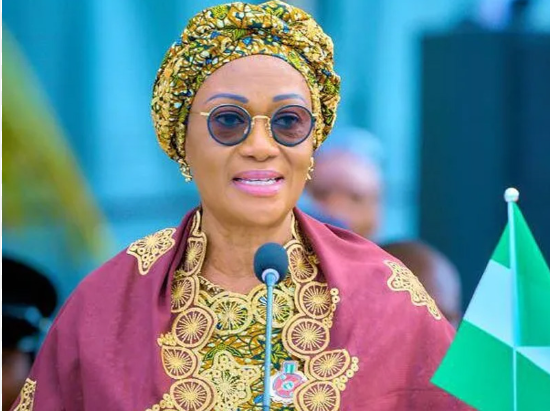By Esther Olaifa, JKNewsMedia Reporter
EVERY APRIL 2nd marks World Autism Awareness Day (WAAD) with experts saying that the global autism movement has reached a turning point.
While awareness has steadily grown, acceptance and meaningful inclusion remain elusive for many autistic individuals.
The 2025 WAAD also brings renewed focus to neurodiversity’s role in achieving sustainable development, urging society to move beyond mere recognition towards tangible action.
On the efforts towards inclusion, the United Nations General Assembly in 2007 designated 2 April as WAAD noting that the global agenda has evolved from raising awareness to ensuring full societal participation for autistic individuals.
The 2025 observance, themed “Advancing Neurodiversity and the UN Sustainable Development Goals (SDGs),” reiterates the need for inclusive policies that dismantle barriers in education, healthcare, and employment.
Organised by the Institute of Neurodiversity (ION) with the support of the UN Department of Global Communications, this year’s event assembles global leaders, policymakers, and autistic advocates.
Discussions will focus on fostering inclusive urban development, improving workplace accessibility, and reshaping public perceptions of autism.
The Urgent Need for Action Beyond Awareness
Despite growing public understanding, a recent survey by the ION revealed that 33% of respondents remain unsure how to respond if someone discloses their autism, while 41% feel unprepared to support autistic individuals.
Such statistics underscore the pressing need for structured education and advocacy initiatives.
Also, the “If You Learn I Am Autistic” campaign, a key component of WAAD 2025, aims to bridge this gap by offering practical guidance on understanding and supporting autistic individuals.
And by challenging outdated stereotypes and promoting acceptance, the campaign reinforces that autism is not a deficit but a variation in human cognition.
A Lived Experience
For 27-year-old James Akpan (not real names), an autistic software developer in Lagos, daily life involves navigating a world designed for neurotypical individuals.
He told JKNewsMedia, “Routine and structure help me function, but the lack of workplace accommodations can be exhausting,” he says.
James is among millions advocating for accessibility reforms that consider neurodivergent needs, from flexible work arrangements to sensory-friendly environments.
Similarly, Maria Okoye, a 22-years of age university student from Nigeria, highlights the socio-cultural barriers autistic individuals face.
“In many communities, autism is misunderstood, often seen as a condition requiring ‘correction’ rather than acceptance,” she explains. Maria hopes that increased awareness will translate into policies ensuring educational equity and workplace inclusion.
Meanwhile, in Nigeria, it is estimated that 1 in 100 children are affected by autism, yet widespread awareness and support services remain limited.
Nigeria’s First Lady Calls for Greater Inclusion
On this year’s WAAD, the First Lady of Nigeria, Senator Oluremi Tinubu, joined the global call for autism acceptance and inclusion.
She highlighted the importance of recognising neurodiversity as a crucial pillar of sustainable development.
“Neurodiversity is a beautiful testament to human uniqueness. Yet, many individuals with autism continue to face discrimination in accessing quality education, healthcare, employment, and social acceptance,” she said.

She emphasised the need to align national policies with the UN Sustainable Development Goals, particularly SDG 4 (Quality Education) and SDG 8 (Decent Work and Economic Growth), ensuring that autistic individuals receive the opportunities they deserve.
Urging Nigerians to embrace neurodiversity, she encouraged a nationwide shift towards inclusion and equity.
Her message resonates with many advocates who stress that true progress will only be achieved when autistic individuals can access the same rights and opportunities as their neurotypical peers.
The First Lady also notes that the 2025 WAAD theme aligns neurodiversity with the UN’s broader mission for sustainable development.
Inclusive education (SDG 4) and equal economic opportunities (SDG 8) are central to ensuring that autistic individuals can thrive in society. Additionally, creating autism-friendly cities contributes to SDG 11, promoting accessible and inclusive urban spaces, she said.
Emphatically, she urges everyone to take WAAD 2025 as amplifying the voices of autistic individuals, as this calls for concrete policy shifts rather than symbolic gestures.
“The movement towards neurodiversity inclusion is no longer optional—it is a fundamental aspect of building equitable, sustainable societies. By embracing neurodiversity, we move closer to a world where every autistic person has the opportunity to reach their full potential. The time for action is now;” Nigeria’s first Lady emphasizes.





